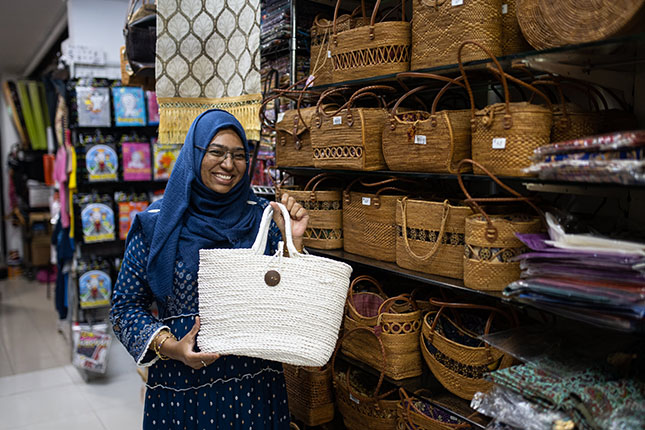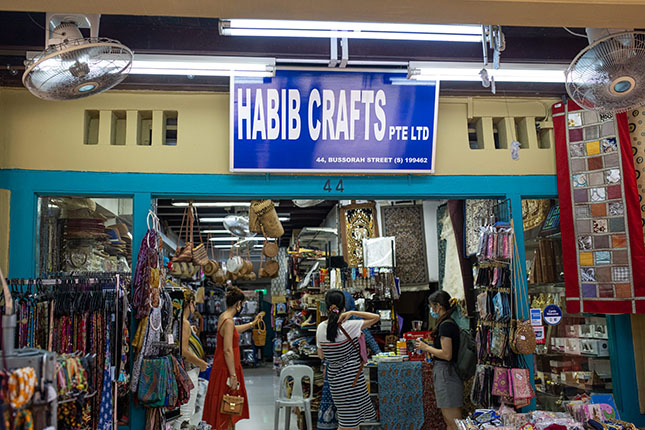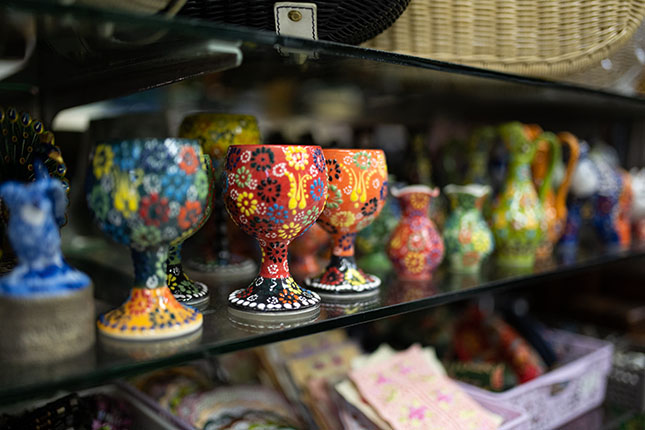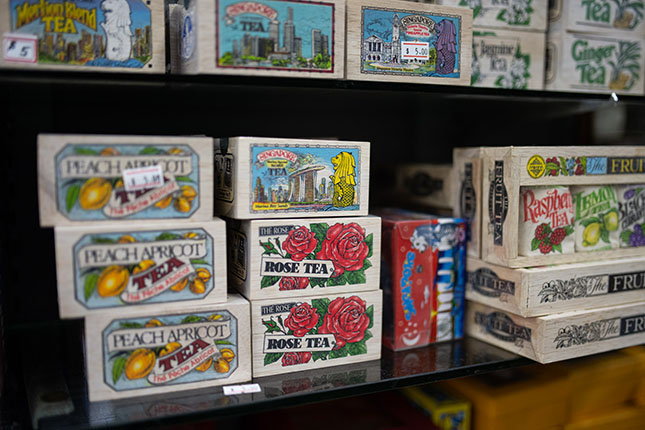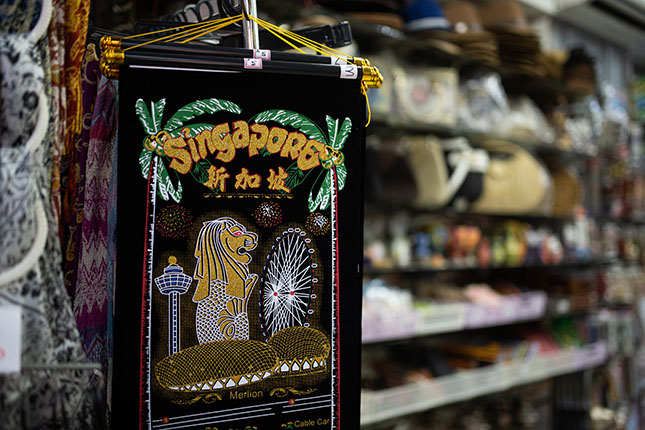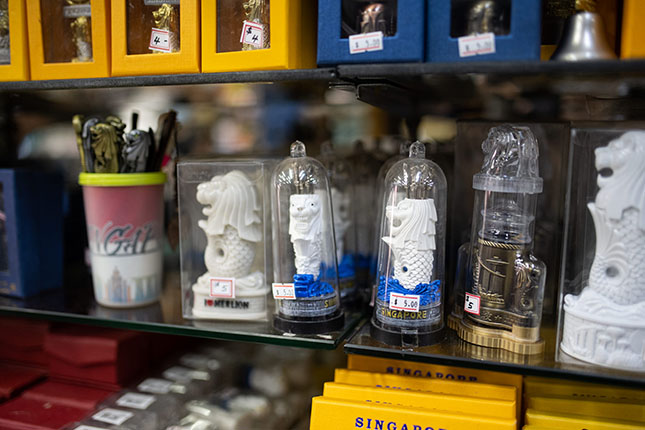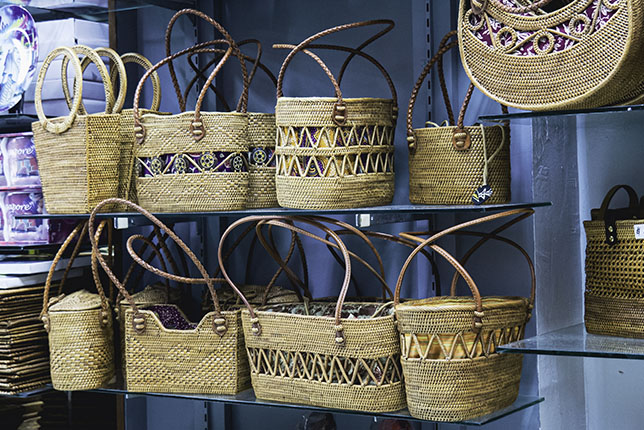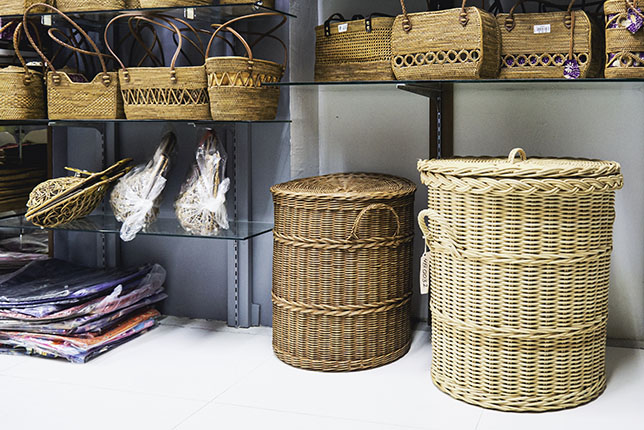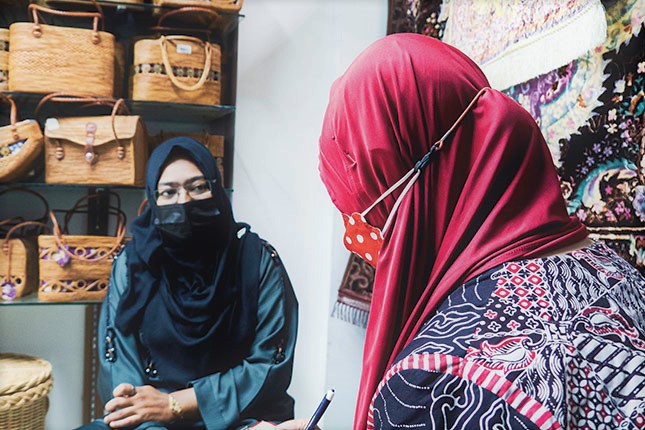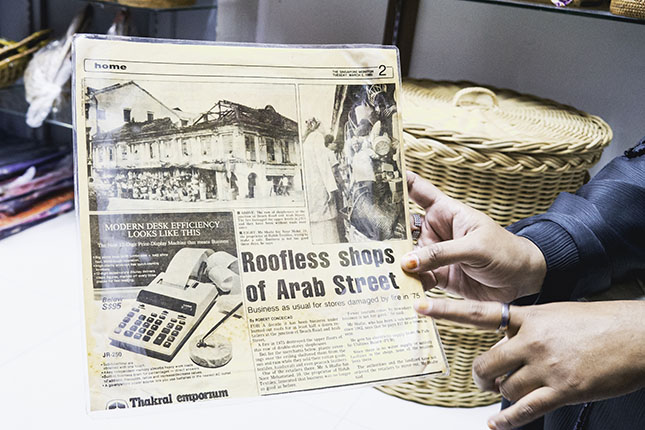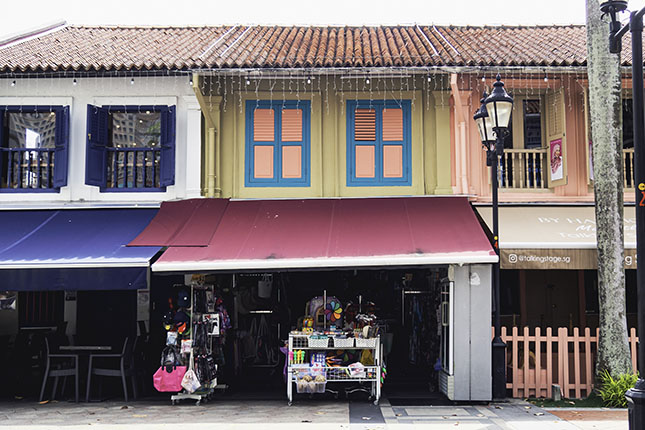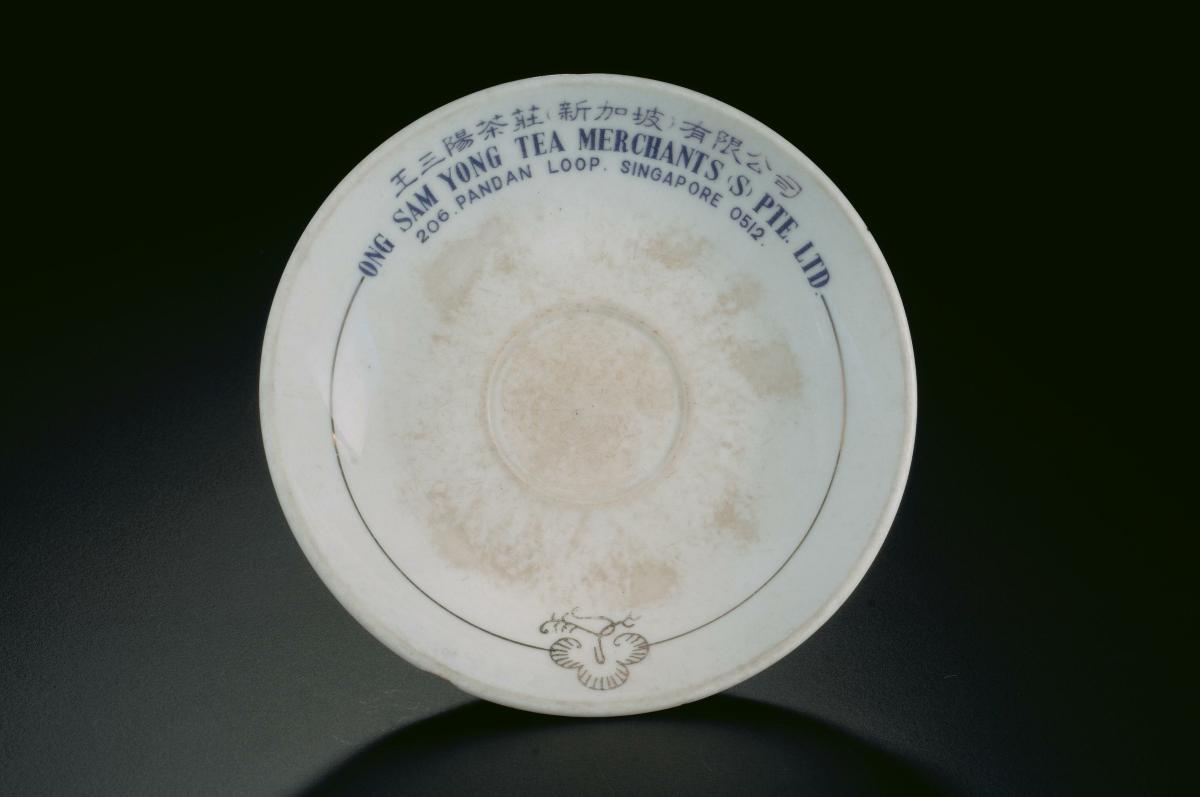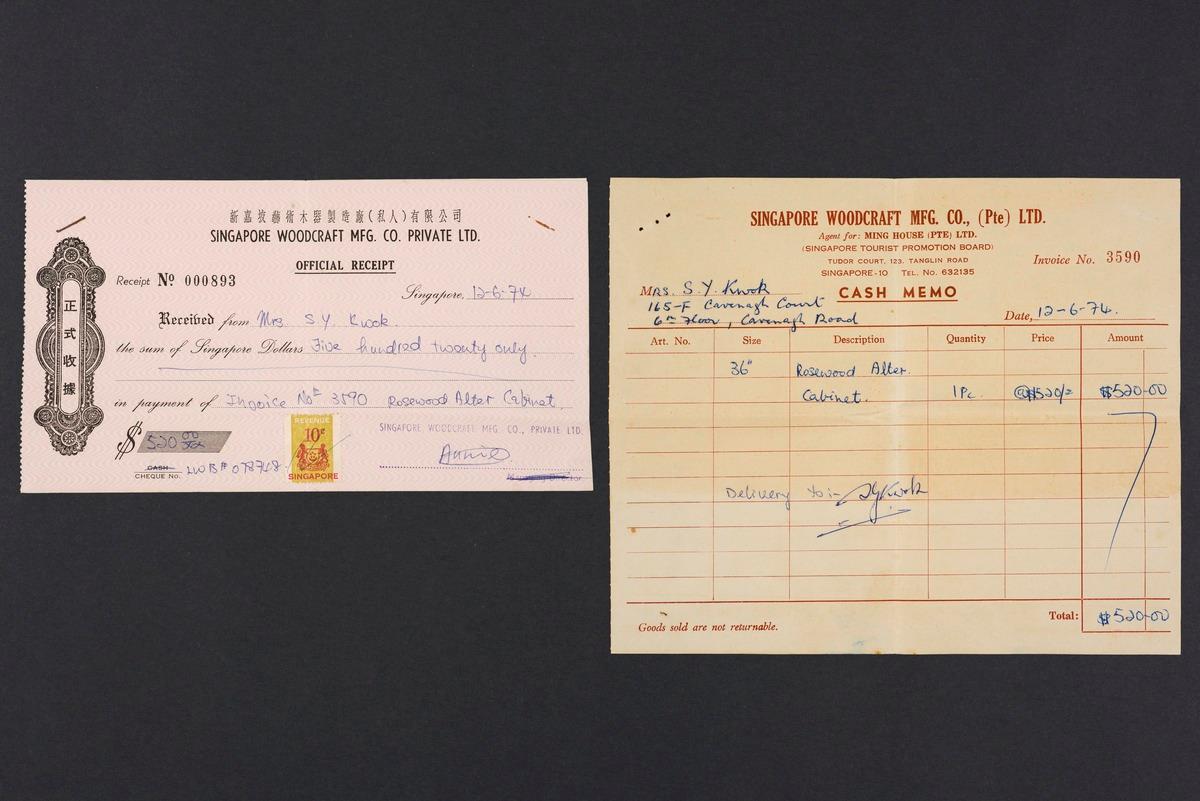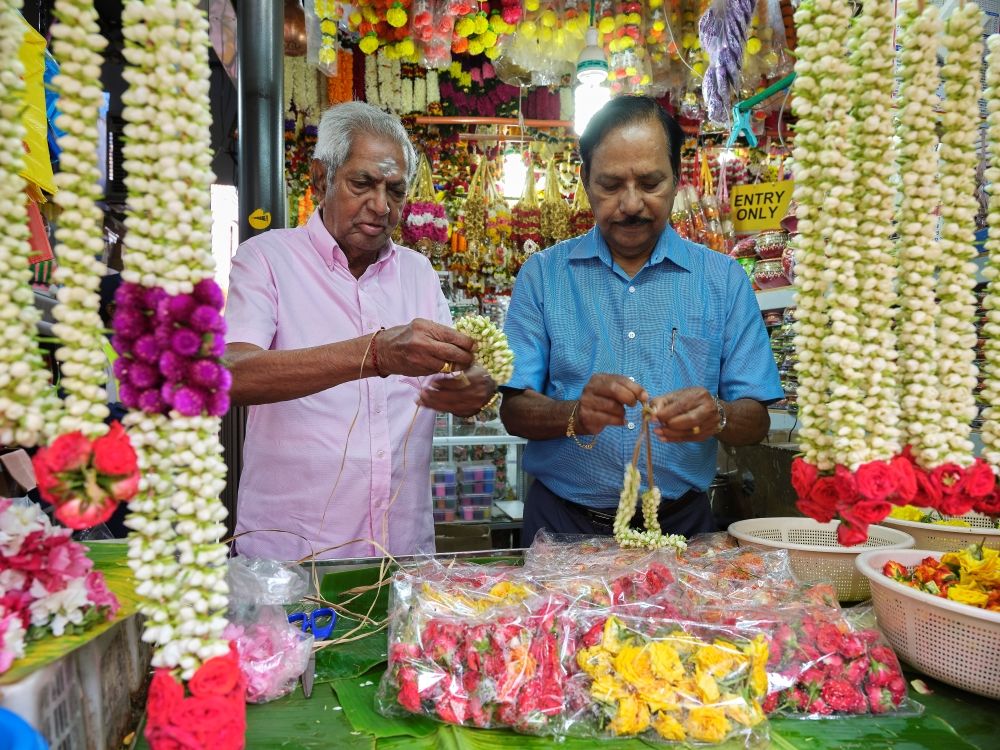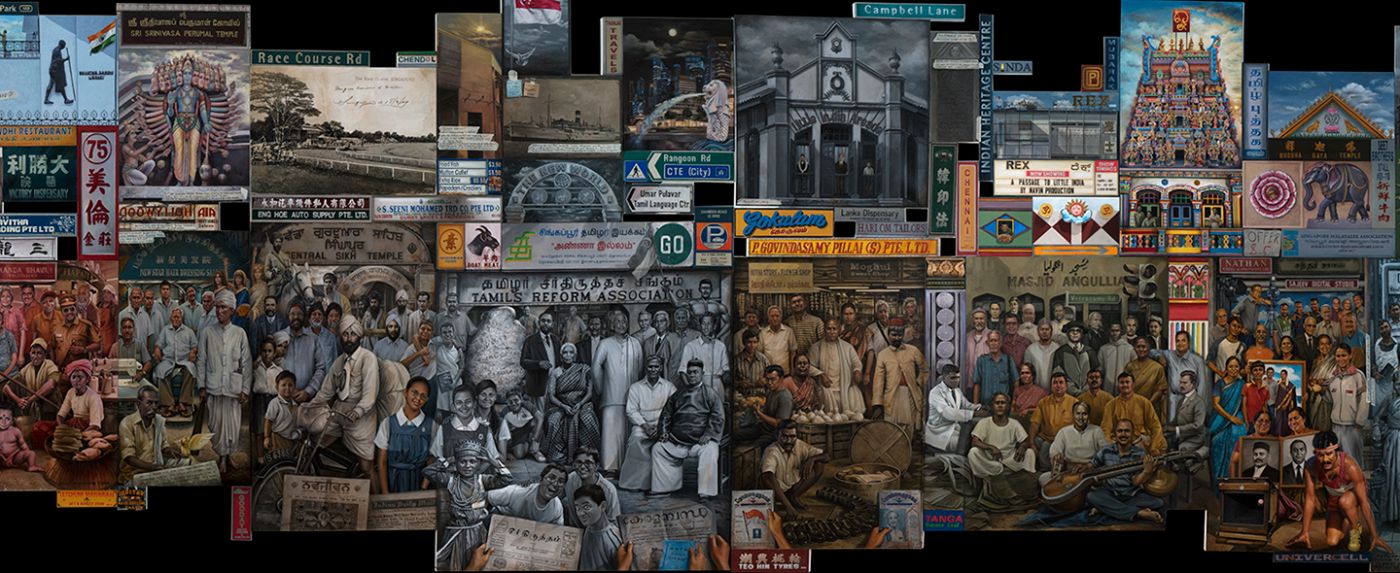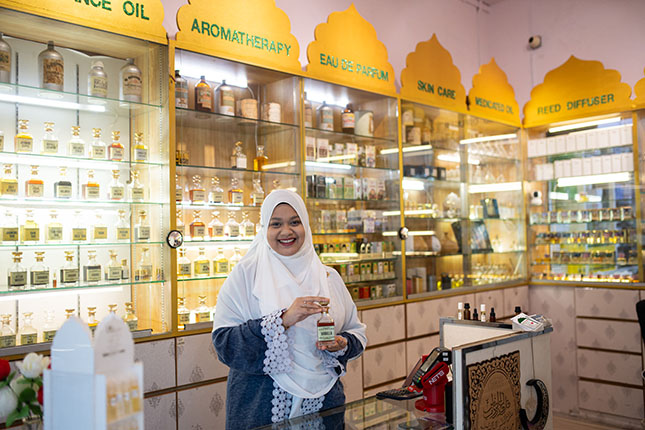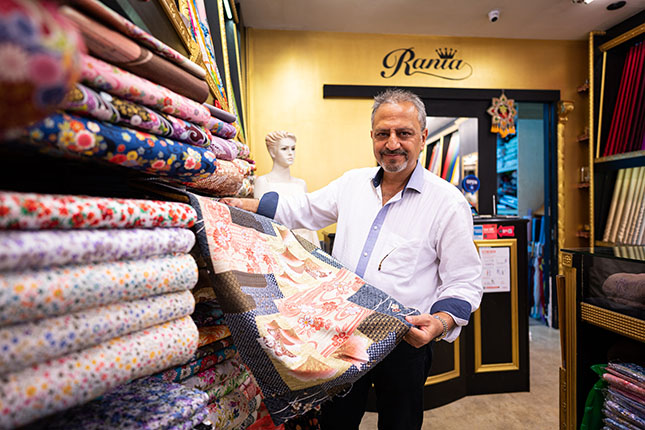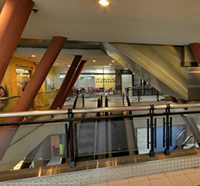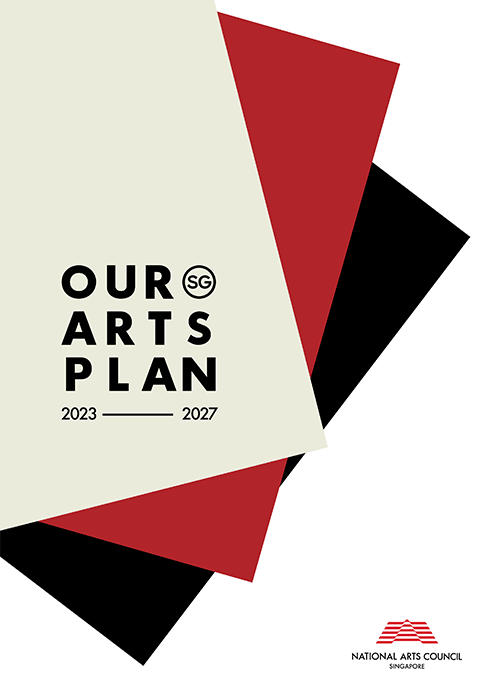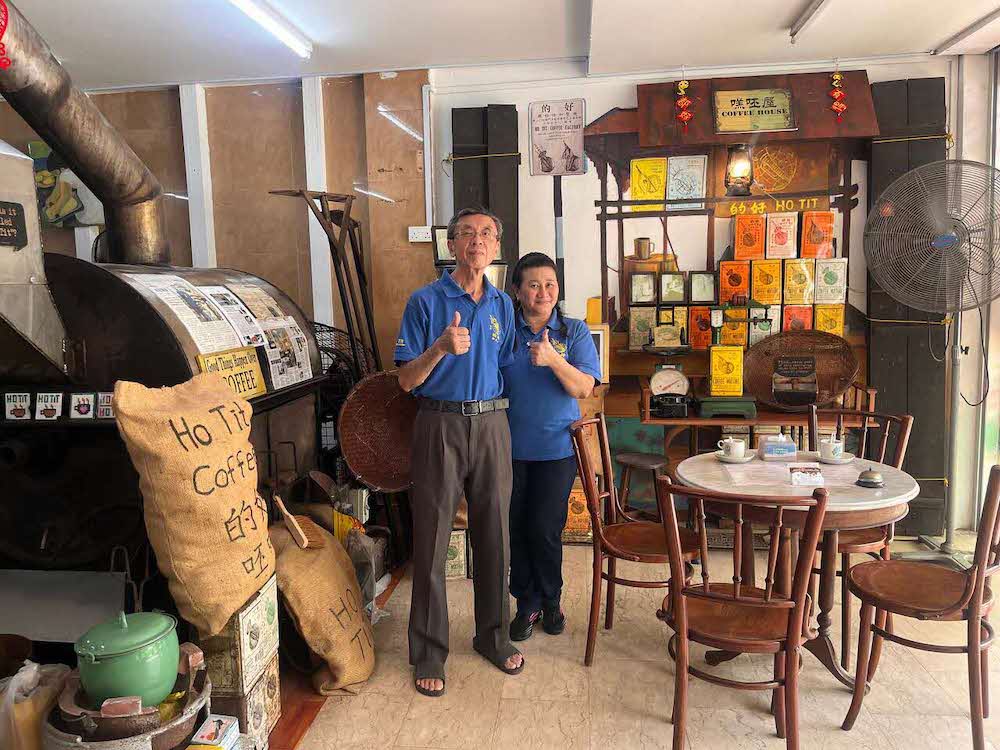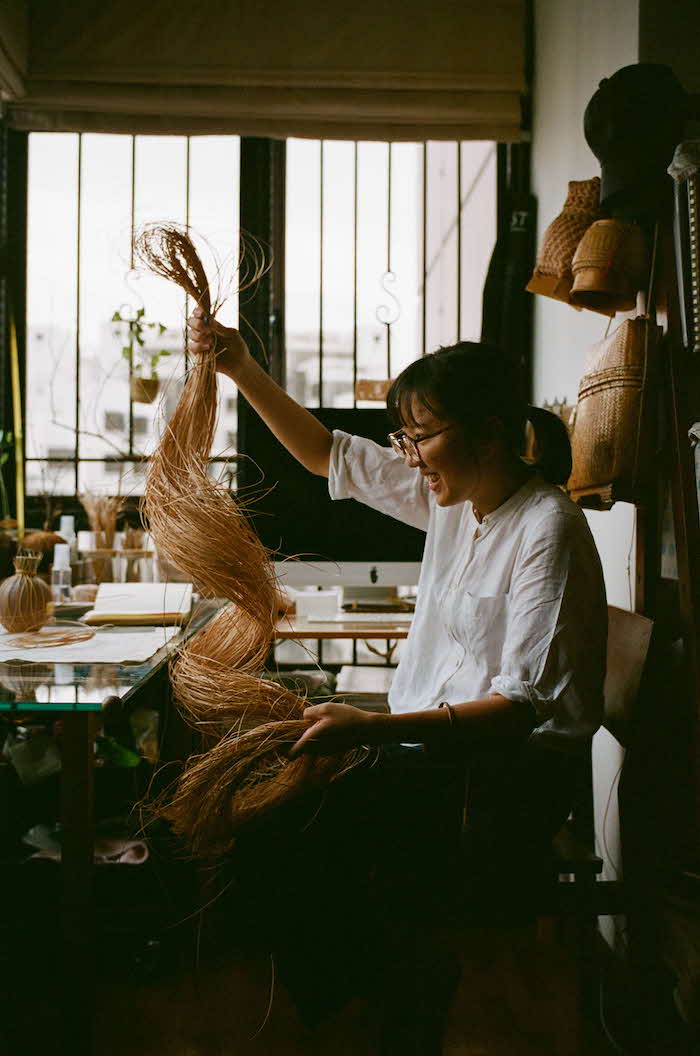Adapting to Changes and Challenges
|
Name of business: |
Habib Crafts Pte Ltd |
|
Business location: |
44 Bussorah Street, Singapore 199462 |
|
Business type: |
Basketry and leather products |
|
Established: |
1940s-1950s |
When Habib Crafts first started out, it sold leather goods at Arab Street. Today, the business has diversified with a focus on handmade baskets and is run by third-generation owner Ms Sabiamma D/O Anwardeen. The business has gone through many struggles, but it is currently experiencing a gradual resurgence of interest in baskets made of natural materials. Ms Sabia is glad that her trade, along with neighbouring businesses in Kampong Gelam, has persisted despite the changing times.
Even as the afternoon sun casts a long shadow of the golden dome of the Sultan Mosque over the neat rows of shophouses that frame Bussorah Street, you cannot miss Habib Crafts. Inside, Habib Crafts' goods spill onto the narrow walkway, displayed in trolleys and racks. You can find a wide array of eye-catching products, from rattan straw bags, rainbow-coloured garden windmills to boxes of classic Snakes and Ladders board game and the Donkey card game. There is a nice, nostalgic feel to the shop, synonymous with that of the Kampong Gelam heritage district. Just as how the interior of the shop runs deep, so does Habib Crafts' own history. Ms Sabia is the third-generation owner of the shop and has much to share about the history of her family business.
The business began in the 1940s or 1950s with her grandfather, says Ms Sabia. It was initially named Habib Leather and Crafts to reflect its focus on leather products and baskets. Habib Leather and Crafts was located at the corner shop where Beach Road meets Arab Street (presently occupied by Fika Swedish Café & Bistro). Ms Sabia’s father was about seven when he began helping out in the family business. Her father did not have a proper education, but her uncles who did would come to the shop after school. Similarly, the shop would become Ms Sabia and her brother’s second home while growing up, and they would return to their actual home after the shop closed at night.
Ms Sabia began her involvement with the family business in 2002, the year her father acquired the current premises. Initially, she had no interest in joining the family business, which would traditionally have passed down to the males in the clan, in this case, her younger brother. But her brother had to serve national service and so she told her father she would stand in for two years. She found that she enjoyed working in the business, especially “engaging and socialising with different kinds of people”. Her brother joined her after completing his national service and the generational transition began. These days, her father still comes to the shop because the business is his life, and the district is where he grew up. Ms Sabia knows just about every “old-timer” in Kampong Gelam and finds comfort that some of them and their businesses have survived with the next generations at the helm. “I’m happy that there are some who are still surviving, you know, when we see them, we are very happy, ‘Wah Uncle, how are you doing’.”, Ms Sabia says. This is especially since the past two years of the COVID-19 pandemic have been particularly harsh to businesses and many were forced to sell off their properties or give up their trade.
Over time, Habib Crafts' focus has shifted from a specialisation in leather baskets and has diversified to the sale of more general merchandise, such as children’s toys and umbrellas. This was due to a reduced demand for leather over time amid rising ethical objections to the consumption of leather products. Baskets made of natural materials, however, seem to be making a gradual comeback, even though demand is not as robust as the period before COVID-19, when Kampong Gelam was a tourist hotspot. “There was a break actually in between,” Ms Sabia says, referring to the pandemic when customers dwindled. “They all went for other options but now that digital media is taking over, I see people prefer to buy natural items.”
Digital media has changed how Habib Crafts sources for products. During her father’s time, he would travel around the world to source merchandise for the shop. Nowadays, this laborious exercise has been simplified: Ms Sabia would first identify new trends online and place the orders for the merchandise. One product which has been a perennial favourite through the decades is the sepak takraw ball. The ball is traditionally made of rattan, but it can now be made from plastic. While other rattan products have declined in popularity, the sepak takraw ball has continued to hold its own since the 1960s. It is a good way to promote a traditional ball sport that kids may not know of, she adds.
A pivotal event that impacted the business was the start of the COVID-19 pandemic when tourists stopped coming to Singapore due to border control measures. This group contributed a substantial portion of Habib Crafts’ income, stopped coming. Throughout 2020, Ms Sabia, her brother, and their father, remained optimistic for a quick end to the pandemic. She even told her father that “Allah has created a break for us” after toiling at the shop without a break for so many years. When 2021 came around with no sign of an end to the pandemic, change became a necessity for the business to move forward. By then, severe manufacturing and global supply chain disruptions had also made sourcing of goods very difficult.
To manage the implications of the COVID-19 pandemic, they began to buy from local sellers in other districts with excess stocks, as well as bringing in goods that catered to local consumers. Her brother took on extra work as a delivery driver to support his family. The pandemic was a wakeup call for the family business, alerting them to the need to expand their target customer groups and the variety of products sold in their stall.
By a twist of fate, the shop’s location near the Sultan Mosque gave them an opportunity to start selling other products. When the mosque reopened, worshippers were required to bring their own telekung (prayer garment worn by Muslim women) and sejadah (Islamic prayer rugs). Habib Crafts was flooded with worshippers en-route to the mosque, asking for these products. “Then it struck us, okay, since everybody is asking, why don’t we just sell [them], make something out of it. So, I brought in some sejadahs, some telekungs and some Malay stuff, Islamic things… Initially, we weren’t doing that because our neighbours were selling [them]. But now, they [the neighbours] have left.” Habib also adopted digital payment methods during this period of change, again, driven by the demand from customers. She now chuckles as she teases her customers: “Yes, I accept anything, except no pay-later (wordplay on the payment system, PayNow).”
Relationships are important to Ms Sabia, not just the ones that have helped sustain her business, but also the ones within the Kampong Gelam community. Many relationships have also transcended generations as have the businesses. Such continuity is important, she points out, because they show that traditional trades have a place in contemporary society. For the young, knowing where they came from is just as important as looking towards the future. She strongly believes that if the younger generation supports these longstanding businesses, they will survive and bloom again.
When it comes to the continuity of her own business, Ms Sabia says it is too soon to tell if Habib Crafts will carry on to the next generation, but for now, she and her brother will work for as long as they can. Before the pandemic, she made her children help at the shop on weekends, not for succession, but simply to learn. “It’s not about taking over the business itself, but [knowing] the challenges faced here, you will meet a lot of people here. So, you learn a lot of things,” she says. “Business is not just about making money, it’s ups, downs, [and] making friends.”
Interviewed by Fistri Abdul Rahim and Mas Hidayati Hamzah on 16 May 2022.




